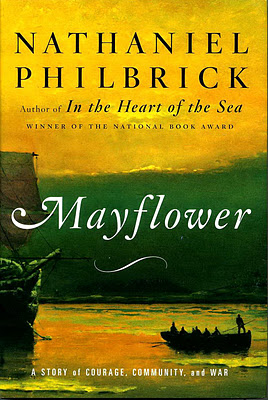It is the hubris of every age to believe that the past was neat and simple and not a little quaint. “Look at those crazy clothes!” we say. “Look at their ridiculous medicine! Look at the inappropriate way in which they entertained themselves!” Which of course dooms us to learn from neither their mistakes nor their successes. For what can one gain from idiots, buffoons and fops?
That said, it may still appear to some that reviewing a book about the age of the Virgin Queen – a book that tries to place the reader into the everyday world of commoners of late Tudor England – on a site dedicated to books relevant to the advertising industry may seem like a bit of a stretch. What possible relevance, one might ask, could the late 16th century have with the early 21st?
“The last few decades have seen so much change that people simply do not know what to believe or think anymore” Ian Mortimer writes of the age of Shakespeare in the opening pages of The Time Traveler’s Guide to Elizabethan England. “They have become used to living with slow-burning crises that might, at any moment, flare up into life-threatening situations.”
Raise your hand if that sounds like anything you’re living through right now.
Still, some may remain unconvinced. “This is not merely the 16th century”, they cry, “this is England in the 16th century! An entirely different country from an entirely different time.” Ah, but hold on. Because those early settlers whom we celebrate the last Thursday of every November carried the DNA of this very society with them and they used it – frozen in a kind of cultural amber – as a foundation that the subsequent colonies were built upon, even as that culture evolved entirely differently in the mother country. All the fundamental building blocks of Elizabethan England are, because of the Massachusetts Bay Colony, in some ways more a part of America’s history than they are a part of England’s. And to be clear, this has nothing to do with having ancestors on the Mayflower – it has to do with being impacted by the country the guys on that ship set the first batch of rules for.
That’s not to say it’s a simple mirror. There are some important differences, and Mortimer sheds intriguing light on these as well. For example, the portrait of “Good Queen Bess” that emerges is of a monarch far more tyrannical and dictatorial than we are used to. We see someone with not only absolute control but also with a clear intent on extending and protecting that control with an almost paranoiac zeal (not that one can blame her, I suppose; when your big sister throws you in prison for treason it’s bound to make you a little skittish). Elizabeth limits the aristocracy, keeps Parliament out of session, and personally manages all promotion and favor. In short, all advancement passes directly through her, and precious little of it was there to be had. It is probably too far to say that she reminds one of Stalin, but that the comparison is even contemplated is shocking enough.
The affairs of heads of state, however, are not why one should read The Time Traveler’s Guide to Elizabethan England. One should read it because in spite of the fact that we are taught to spend our time learning lessons from the lives of great men and women, it is the lives of the common rabble that our struggles most resemble. And studying them is a good thing because, as Mortimer writes, “Our ancestors do survive and thrive. We are the descendants of the survivors. Elizabethans are not some distant, alien race but our families – they are us, in a manner of speaking – and they show us what human beings are capable of enduring… They look to the stars and chart a new course that the Earth follows round the sun. They are afraid and, at the same time, they are excited and in love.”
That’s why Mortimer’s book is valuable. Because as we learn about them, we learn about ourselves, we remind ourselves what we are capable of, both good and bad. “History” Mortimer writes “is not really about the past; it is about understanding mankind over time. Within that simple, linear story of change and survival there are a thousand contrasts, and within each of those contrasts there is a range of experiences and if we put our minds to it, we can relate to each one.”
Or as Faulkner said a little closer to home “The past is never dead. It’s not even past.”
So let he who is beyond perspective cast the first stone.
The Time Traveler’s Guide to Elizabethan England by Ian Mortimer was published by Viking on 06/27/13 – order it from Amazon here or from Barnes & Noble here – or pick it up at your local bookseller (find one here).
Please be advised that The Agency Review is an Amazon Associate and as such earns a commission from qualifying purchases
You May Also Want to Read:


by Nathaniel Philbrick

by David Hackett Fischer

by Ron Chernow
